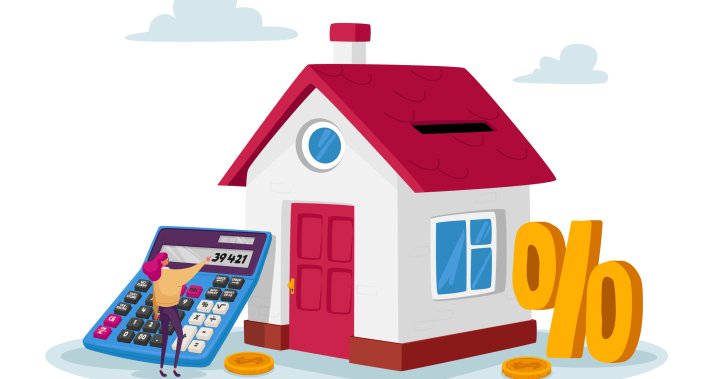A recent report by Rates.ca reveals that variable rate mortgage holders in Canada have incurred thousands of dollars in additional interest since the Bank of Canada began raising rates. The report compares the difference between fixed and variable rate mortgages using a hypothetical example of a five-year insured mortgage of $500,000 taken out in July 2021. At that time, the fixed-rate was 1.99% and the variable rate was 1.25%.
As the Bank of Canada’s key rate fluctuates, variable rate mortgages follow suit, while fixed-rate mortgages remain unchanged. Fast forward to September 2023, after multiple rate hikes, and the variable rate mortgage holder would have paid approximately 63% more in total interest compared to the fixed-rate holder. Another way to look at it is that the variable rate mortgage holder would have paid 227% more in interest if rates hadn’t spiked.
According to Rates.ca, after 10 rate hikes, the variable rate path has cost $23,579 more in cumulative interest compared to what would have been paid if the rate had remained unchanged. In just six months, the variable rate holder surpassed the fixed-rate holder in terms of monthly interest paid.
Victor Tran, a mortgage and real estate expert at Rates.ca, acknowledges that each person’s circumstances are different, but the report highlights the challenges faced by the average Canadian with a variable rate mortgage. He suggests that many people may have regrets about not choosing a fixed-rate option when it was available.
Tran also notes that deciding between a variable or fixed rate mortgage can be difficult. Factors to consider include the remaining term of the variable rate mortgage, the outstanding balance, and the short-term and long-term goals of the borrower.
Eitan Pinsky, owner of Pinsky Mortgages, points out that customers with variable rate mortgages are now facing higher and unpredictable costs, with some paying tens of thousands of dollars more. However, he believes that there can still be benefits to choosing variable rates, depending on the individual and their risk tolerance.
Looking ahead, Pinsky suggests that some people who have chosen a variable-rate mortgage could benefit in the future, but timing is crucial. He believes that those who obtained a variable rate before the recent rate hikes may not be better off even if rates eventually decrease. However, for those considering a variable rate at this time, there is a good chance of being in a better position.
While it’s uncertain if rates will fall in the coming years, those with a variable rate mortgage could potentially pay less monthly if rates do decrease. Pinsky emphasizes that variable rates can be converted to fixed rates at any time, giving borrowers some control over their payments.
Tran notes that fixed rates are currently more popular due to the desire for stability and certainty. People are wary of fluctuating payments associated with variable rates. Pinsky believes that variable rates will regain popularity in the future but predicts that it will take time, as it will depend on the Bank of Canada lowering rates.
In conclusion, when choosing a mortgage, both Tran and Pinsky recommend consulting with mortgage professionals and experts to determine the best option based on individual circumstances.
Denial of responsibility! Vigour Times is an automatic aggregator of Global media. In each content, the hyperlink to the primary source is specified. All trademarks belong to their rightful owners, and all materials to their authors. For any complaint, please reach us at – [email protected]. We will take necessary action within 24 hours.


